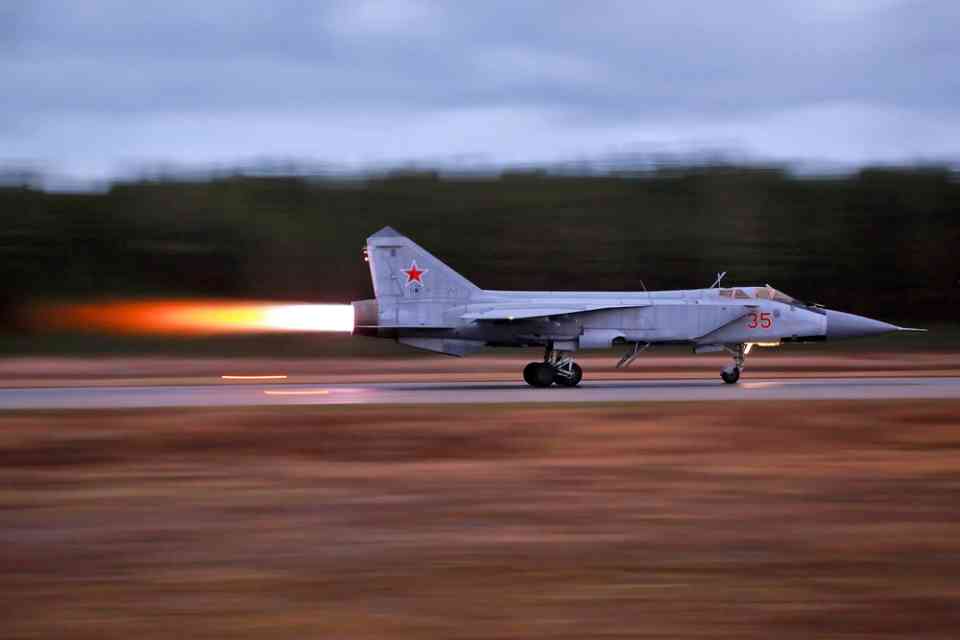Revealed: Top 10 World’s Fastest Military Aircrafts, 2024

In 1947, the Bell X-1 made a historic supersonic flight, which proved to be a pivotal moment in aviation history. This research aircraft, powered by rockets and developed by the United States military, broke existing speed records by approaching speeds of 1,000 miles per hour. This groundbreaking achievement paved the way for regular supersonic flight in military aviation, ushering in a new era of high-speed air travel and warfare.
The significance of the Bell X-1’s achievement cannot be overstated. Breaking the sound barrier, a feat that was once thought to be impossible, demonstrated the potential for aircraft to travel faster than the speed of sound, known as Mach 1. The speed of sound, approximately 717 miles per hour, is not a fixed number; it varies depending on factors like air temperature and pressure. Overcoming this natural barrier was a testament to the ingenuity and determination of engineers and pilots of the time.
The advent of supersonic flight brought with it a host of advantages for military aviation. High-speed warplanes, capable of traveling at Mach 2 or higher (twice the speed of sound), possessed a strategic edge in combat. Their incredible speed made them difficult to detect by radar, and their elusive nature rendered them challenging to intercept or neutralize. This technological leap in aviation significantly altered the dynamics of aerial warfare, emphasizing the need for speed and agility in combat aircraft.
As the technology evolved, various models of supersonic jets were developed, each with its unique features and capabilities. However, the cost of manufacturing such advanced aircraft was substantial. The production costs for these jets, reported in US dollars at the time of their manufacturing, varied widely. The most economical jets in this category were priced around $10 million, while the most expensive ones could cost up to $150 million. This wide range in costs reflects the varying levels of technology, materials, and design complexity involved in producing aircraft capable of such extreme speeds.
The legacy of the Bell X-1 and the subsequent development of supersonic military jets are a testament to human innovation in the face of challenging technological frontiers. The ability to fly faster than sound not only revolutionized military aviation but also paved the way for advancements in commercial aviation, leading to the development of faster, more efficient passenger aircraft. This journey, from breaking the sound barrier to routinely flying at twice the speed of sound, marks a remarkable chapter in the history of aviation, highlighting the relentless pursuit of progress and excellence in aerospace engineering.
- MiG-31 Foxhound
Speed: 1,864 mph
Country: Russia
Cost: $33 million - F-15 Eagle
Seed: 1,650 mph
Country: USA
Cost: $30 million - F-111 Aardvark
Speed: 1,650 mph
Country: USA
Cost: $10 million - Su-27 Flanker
Speed: 1,553 mph
Country: Russia
Cost: $41 million - MiG-29 Fulcrum
Speed: 1,520 mph
Country: Russia
Cost: $22 million - Chengdu J-10
Speed: 1,445 mph
Country: China
Cost: $28 million - Dassault Mirage 2000
Speed: 1,400 mph
Country: France
Cost: $31 million - F-22 Raptor
Speed: 1,355 mph
Country: USA
Cost: $150 million - Eurofighter Typhoon
Speed: 1,320 mph
Country: Multi-national
Cost: $105 million - Sukhoi Su-57
Speed: 1,320 mph
Country: Russia
Cost: $42 million
Have you read?
Best countries for hiring freelancers.
Highest Paid Big Pharma CEOs And Top Executives.
Best Websites For CEOs, business leaders, and high-net-worth individuals.
Best Executive Search Firms And Consultants in America.
Revealed: Most Powerful Women In The World.
Bring the best of the CEOWORLD magazine's global journalism to audiences in the United States and around the world. - Add CEOWORLD magazine to your Google News feed.
Follow CEOWORLD magazine headlines on: Google News, LinkedIn, Twitter, and Facebook.
Copyright 2025 The CEOWORLD magazine. All rights reserved. This material (and any extract from it) must not be copied, redistributed or placed on any website, without CEOWORLD magazine' prior written consent. For media queries, please contact: info@ceoworld.biz








